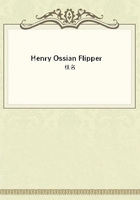
第22章
Of course the plebes, being inexperienced for the most part, are "high privates in the rear rank."For another reason, also, this is the case. The first and second classes have the right established by immemorial custom of marching in the front rank, which right necessarily keeps the plebes in the rear rank, and the yearlings too, except so many as are required in the front rank for the proper formation of the company. Another reason, perhaps, may be given to the same end. We have what we call class rank, or, in other words, class standing. Every class has certain privileges and immunities, which the junior classes do not enjoy; for example, first-classmen, and second-classmen too--by General Orders of September, 1876--are excused from guard duty in the capacity of privates, and are detailed-- first-classmen for officers of the day and officers of the guard, and second-classmen for non-commissioned officers of the guard. All members of the third and fourth classes are privates, and from them the privates of the guard are detailed. All officers, commissioned and non-commissioned, are exempt from "Saturday punishment." I mean they do not walk extra tours of guard for punishment. The non-commissioned officers are sometimes required to serve such punishments by discharging the duties of corporal or sergeant in connection with the punishment squad. Third-and fourth-classmen enjoy no such immunities. Plebes, then, having no rank whatever, being in fact conditional cadets until they shall have received their warrants in the following January, must give way to those who have.
One half or more of the privates of the company must be in the front rank. This half is made up of those who rank highest, first-classmen and second-classmen, and also, if necessary, a number of third-classmen.
Plebes must then, except in rare cases, march in the rear rank, and from the time they are put in the battalion till the close of the summer encampment, they are required to carry their hands with palms to the front as prescribed in the tactics.
All this is kept up till the close of camp, and makes, I think, plebe camp the most trying part of one's cadet life.
On the 28th of August the furloughmen return, and report to the commandant at two o'clock for duty.
In the afternoon the battalion is sized and quarters are assigned under the supervision of the assistant-instructors of tactics.
At parade the appointment of officers and non-commissioned officers for the ensuing year is published, and also orders for the discontinuance of the encampment.
In the evening the "twenty-eighth hop" takes place, and is the last of the season. On the 29th--and beginning at reveille--the cadets move their effects into winter quarters in barracks. All heavy articles are moved in on wagons, while all lighter ones are carried over by cadets themselves. By seven o'clock every thing is moved away from camp, save each cadet's accoutrements.
Breakfast is served at 7 A.M., and immediately afterward comes "troop" and guard-mounting, after which the entire camp is thoroughly policed. This requires an hour or more, and when all is done the "general" is sounded. At this the companies are formed under arm in their respective company streets. The arms are then stacked and ranks broken. At least two cadets repair to each tent, and at the first tap of the drum remove and roll up all the cords save the corner ones. At the second tap, while one cadet steadies the tent the other removes and rolls the corner cords nearest him. The tents in the body of the encampment are moved. Back two feet, more or less, from the color line, while the guard tents and those of the company officers are moved in a northerly direction. At the third tap the tents fall simultaneously toward the color line and the south cardinal point, amid rousing cheers. The tents being neatly rolled up and placed on the floors, the companies are reformed and on the centre. The battalion then marches out to take up its winter quarters in barracks.
When camp is over the plebes are no longer required to depress their toes or to carry their hands with palms to the front. They are, in fact, "cadets and gentlemen," and must take care of themselves.